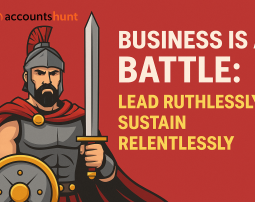Scaling a Business? Get Ready for the Fire.
As your business grows, so does the circle of stakeholders. Alongside them, like shadows—come opponents. Growth invites attention, and attention attracts both opportunity and scrutiny.
Even if you’re running a clean, ethical operation, legal and reputational battles are inevitable.
From:
-
Employment law disputes
-
Factory or workplace accidents
-
Customer incidents
-
Intellectual property claims
-
Regulatory lapses
-
Tax audits or import-export violations
No one is immune—not even Elon Musk. When the stakes are high, you don’t just manage a business—you manage battlegrounds.
Not All Battles Are Born Equal
Sometimes, claimants are genuine.
They’ve suffered real damage, and your ethical compass must honor their loss. Compensate them. Own it. Learn from it.
But most of the time, it’s different.
People manipulate legal systems, exaggerate damage, fabricate stories, or use regulatory loopholes—not for justice, but for leverage. Their goal?
Big payouts. Public humiliation. Brand sabotage.
And when you try to “buy peace” by compensating them quickly?
You become an easy target.
They come back. Louder. Bolder. With higher demands.
In That Fire, Don’t Pour Water.
Play fire with fire.
(Not fight it—play it. Pretend. Strategize.)
“Iron cuts iron.
Diamond cuts diamond.
Fire counters fire.”
When you’re unfairly attacked:
-
Counter-allege. If they accuse, find a legitimate angle to accuse back.
-
Build your own narrative. If they exaggerate loss, expose their intentions.
-
Control the perception. If they try to defame, highlight how their actions are harming your people, your credibility, your customers.
You’re not trying to destroy. You’re distracting, deflecting, and escaping—through their fear.
This isn’t about vengeance. This is about self-defense by smart offense.
Like in the Mahabharata
When Karna used AgniAstra, Arjuna didn’t fold—he responded with RaudrAstra.
The message: match the weapon to the war.
Don’t waste time trying to reform those who weaponize regulations and lawsuits against you. They don’t want change. They want control.
So don’t try to “teach them a lesson.”
Escape through pressure. Exit through their distraction.
But Choose Your Fire Wisely
Use fire only when it’s worth it.
In small or harmless cases, don’t scorch your energy, resources, or brand image. Sometimes, paying the damage—even when it’s more—is the cheaper path.
Your power lies in knowing when to fight,
when to flare,
and when to fly under the smoke.
In Conclusion:
Business isn’t a playground. It’s a battlefield.
And when the fire comes—don’t flinch.
Flare back, fearlessly. Strategically. Intelligently.
Because survival isn’t about avoiding fire.
It’s about knowing how to walk through it without burning down your empire.




